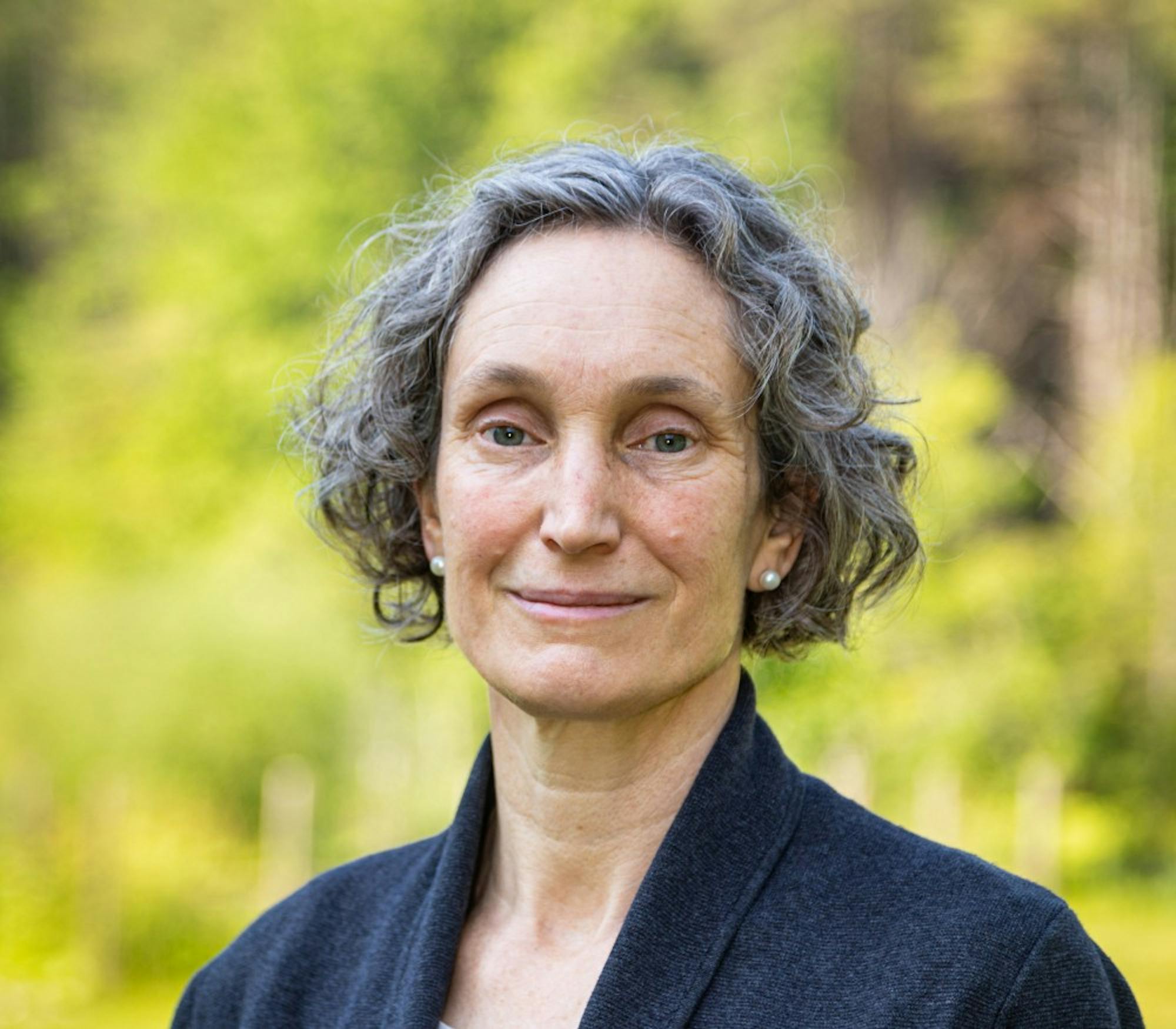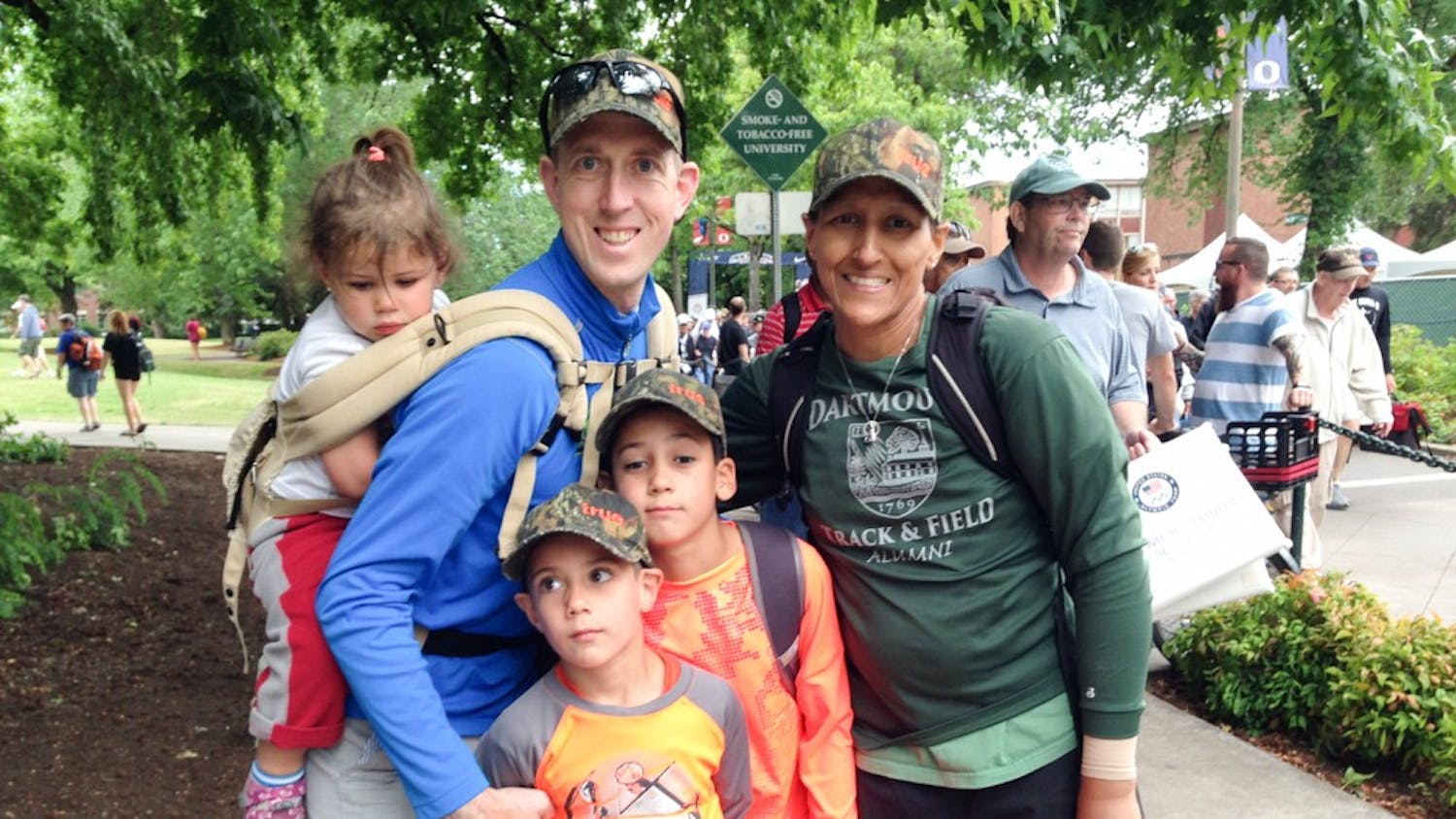Rebecca Holcombe, a former education instructor at Dartmouth, announced her candidacy this July for governor of Vermont in the 2020 election. Holcombe, a Democrat, grew up in Afghanistan, the Fiji Islands, Pakistan and Sudan with parents who worked for the United Nations. While she began her education overseas, she completed her high school and college education in the United States, later receiving a doctorate in education leadership, policy and practice from Harvard’s Graduate School of Education. She is a former teacher, principal and administrator for the Rivendell School District in New Hampshire, and she served as director of Dartmouth’s Teacher Education program from 2011 until 2014. In 2014, she was appointed as Vermont’s secretary of education, a position she held until 2018, when she resigned due to policy differences with Gov. Phil Scott (R). She currently lives in Norwich, VT with her family.
Why are you running for governor?
RH: Because Vermont is such a fantastic state with so many tremendous assets and opportunities ahead. But we also have some significant challenges, like the increasing challenges of equity and the ability to bring opportunity to all parts of the state — not just the places that are doing well. I want to take advantage of my experience to push the democratic project of making sure the state is working to create opportunities so people can go out and live well.
You considered running in 2018. Why run now and not in the previous election?
RH: That was late in the race. There was already a full group of candidates. It didn’t seem like the right time. For politics in Vermont, you need to plan ahead and start early. As a Democrat, you need to get out early to get your message out and be heard, so people have a choice.
You said in an interview with the Valley News, “I joined Gov. Scott’s administration because I took him at his word that he was serious about working to make Vermont more affordable and more equitable. I resigned when I realized that was just talk.” If elected, how will you make Vermont more affordable and more equitable?
RH: In a number of ways. One example is health care, which is absolutely critical. The underlying cost of health care has gone up six percent in one year. Health insurance rates for qualified health plans have gone up double digits this year. People cannot afford this, particularly younger and working-age people. One-third of people in Vermont that are of working age are under insured. Health is one sector that touches everything. For example, the governor is saying that school budgets are too high. The driving increase is health care. If we want to make Vermont more affordable, we have to do the hard work to make sure healthcare is affordable and accessible. Another way is in education. The state’s mental health system is underfunded. There are challenges around people that need treatment to addiction and people exposed to trauma. Schools can only treat children, but can’t treat family. What we really need to do is help the families of the kids exposed to trauma. We can treat children, but if we send them back to a family struggling, then the child will just be re-exposed to trauma. Instead of trying to treat people after they are hurt, we need to go to the source and find out what is hurting people in the first place. We need to do this in a number of sectors.
You worked at Dartmouth as the director of the Teacher Education Program, as a former public school teacher and as an administrator in the Rivendell school district. What did you take from your time working in public education that you will use if elected?
RH: I took away three things. First, the notion that we are all better off if we make sure we all have a chance. When children have the opportunity to get a good education, they will always take that with them to make good things happen even in the face of challenge. Our best investment in young people is giving them a strong positive start. There are few places where people come together and talk about their hopes for the future. Public schools are one of the only places that do that. Diverse communities are brought together by how to build an institution that prepares children for the future. Schools are the most democratic institution because we come together to figure out how to work together. There are a lot of concerns about the future. Schools are — at their core — hopeful because they are creating opportunity for the next generation. Education in Vermont is very pragmatic. It’s about good ideals to make sure we create opportunity, but we have to have a budget and vote on it. We all have financial restraints. It’s all about doing the most you can with the least amount of dollars. When I was at Rivendell, I was standing outside the school. I was talking to a parent and mentioned that I would love to get the building wired. His comment was “What wire do you need?” A few days later, we wired the entire school. This was years ago. Now, we don’t do wires. But in rural areas, it was a big deal. There’s a pragmatic mentality you see in a lot of Vermont schools. How do we do this? We get the job done well with what we have. I like that spirit.
Your background is primarily in education and education policy. Over the next year, how do you plan on staying up to date on other policy issues and making those views known?
RH: Having worked at the state level, I have a lot of connections already and pull heavily on my network when thinking about the primary issues to address and how best to address them. That’s been incredibly helpful. In terms of moving forward with the campaign, the fun part is getting out around the state. I am trying to hit all 251 towns. I want to get out and meet people and hear from them. I want to hear what they are worried about, what they think is a strength and how the state should move forward. Getting input from the public and people that are already in the state government, there seems to be an emerging consensus about important priorities. The first part is building a strong base of support, reaching out to all the democratic committees and establishing those connections. As I continue to fundraise, I will bring on a staff. I am planning on leveraging contacts I have from my previous work. The interesting thing about working in education is it touches so many aspects of life that people don’t realize. We worked with the Department of Agriculture to feed children, childcare providers and senior citizens. We worked closely with the Health Department and Health Education. We worked with the Department of Labor on workforce development. We had to work with the Tax Department. You can’t work in any agency and not touch other agencies.
Do you have any advice for Dartmouth students interested in pursuing politics or just wishing to be more informed?
RH: First of all, vote. You have to register to vote. Vermont wants to hear young people’s voices heard. We want to know where you want the nation to go. Everyone of your readers should go out to vote and can register to do it online, so there are no excuses. For folks who want to move into politics, know that issues are hard. Don’t expect that there is a simple answer because it probably isn’t going to work the way you think it will. But you can’t give up. Begin by understanding your core values. Always be motivated by your commitment to your core purpose. This will keep you on a straight course in a world that can get confusing fast. I don’t think there is a more important election than the one in 2020. You can also always volunteer with my campaign if you want to reach out.
This interview has been edited and condensed for clarity and length.




